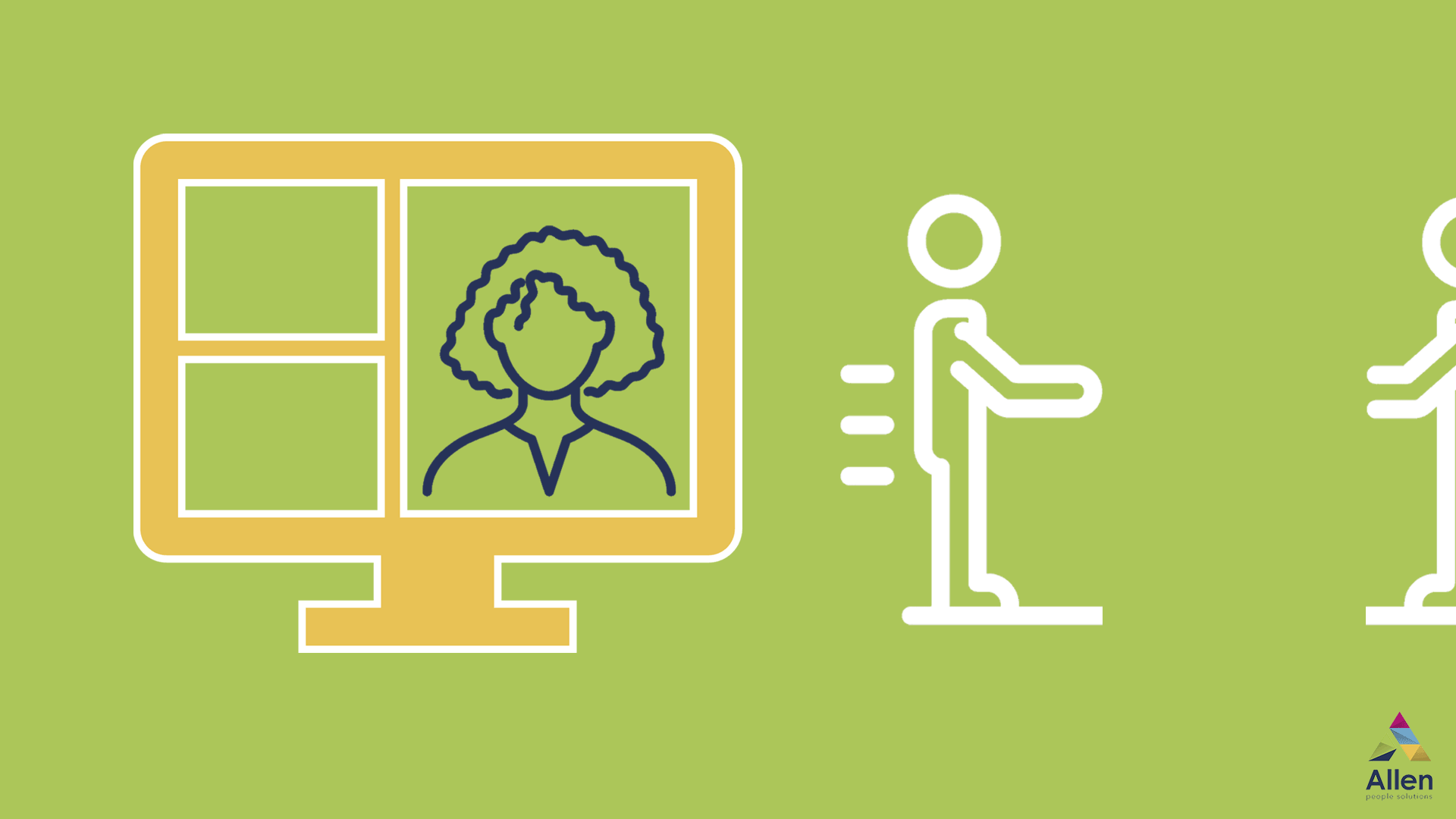
So, it’s the day of the interview, you’ve got some solid preparation done but you may still be feeling a little nervous. Even the most prepared candidate is bound to have a few butterflies before the big day. Having a bit of nervous excitement can be a good thing, as it can help you to remain present and focused. It also shows that you truly care about the role!
The best way to overcome pre-interview nerves is to prepare. If you haven’t already, you might want to check out our guide to preparing for the interview.
The top tips we’ll cover in this article are:
Now let’s get into our top tips for during the interview:

In person:
When you arrive at the interview location, remember that your body language and non-verbal communication can tell a lot about you, so even before the interview take care to be friendly to anyone that might greet you before you are called in.
On arrival at the interview room, wait to be introduced to the panel and invite to sit. Introduce yourself confidently and warmly, making eye contact and remember to smile.
Online:
If the interview is online, as we explained in our previous video it is helpful if you know the video calling software you are using. Test your equipment in advance: camera, sound and lighting are all important. If possible, find a quiet room with minimal background noise and no distractions.
Tip – call a friend the day before or the morning of to make sure you are coming through clearly and your internet connection is stable enough to prevent any disruptions.
Try your best to relax. Whether you are interviewing in person or online, utilise a breathing practice to help ground yourself. This will help you appear more relaxed too.
It sounds simple, but when you’re under pressure it can be difficult to remember!
Listen carefully to the question to make sure you understand what is being asked. If you are not sure of the question, don’t be afraid to ask for clarification before answering. This could include replaying back to the panel your understanding of what is being asked before you start to answer. However, try not to repeat every question!
Don’t launch into the question immediately, pause for a few seconds to gather your thoughts and recall. Take your time, pace your voice (tone and pitch), and make sure you answer the questions. If there are multiple parts to a question, make sure you answer all parts. Ask the panel to repeat the question if you forget what the second part was after you have given your answer to the first.
It’s important to be thorough in your answers to reflect the full depth and breadth of your experience. Be careful that you don’t go off in tangents unnecessarily but if you do don’t panic, just refocus and steer back to your point.
Try and focus on the most memorable events and examples that showcase you in your best light.
Avoid exaggerating your experience and do not make things up, this will only cause issues further down the line in terms of your employer’s expectation of you.
Use STAR to structure your answers:
When answering a question that is looking for an example, it can be useful to use the STAR format.
Situation: Tell them what the specific example is about. Explain the context/ situation of the example (it is important that you help the panel to understand what your example is about before you get into the detail so as they have the overall context).
Task: Explain the task you had to complete and what your role was.
Action: Describe the action you took including why you took that course of action (focus on what you did) and any obstacles or challenges you encountered and how you overcame them.
Result: Explain what the outcome was (was it successful and any lessons learned?)

There are many factors which have the potential to throw you off during an interview, try to have a flexible mindset and adapt your prepared answers as you progress. You may be asked for an example about something that didn’t go to plan – you should remember to discuss what you learned from this and what you would do differently.
Check out our post about Growth Mindset to learn more!
If you have any gaps in your knowledge or experience against the criteria required, state how these could be filled and the timeline of how long it would take you to acquire the required competence.
All interviewers different so you can adapt your approach according to the panel, making sure you always remain professional while trying to establish a good rapport. Take note of their body language too: if they are starting to fidget or appear bored it’s time to wrap up or get back to the main point. If they are looking inquisitive and leaning in, keenly elaborate.
Tip – Don’t be put off by the fact that the panel will be taking notes and therefore may not always be able to make eye contact with you. Keep talking and stay focused. When they do look up make sure you maintain a level of eye contact.
Join our newsletter
Sign up to keep up to date with exclusive offers, updates and more.
UK & NI:
ROI:
Email: